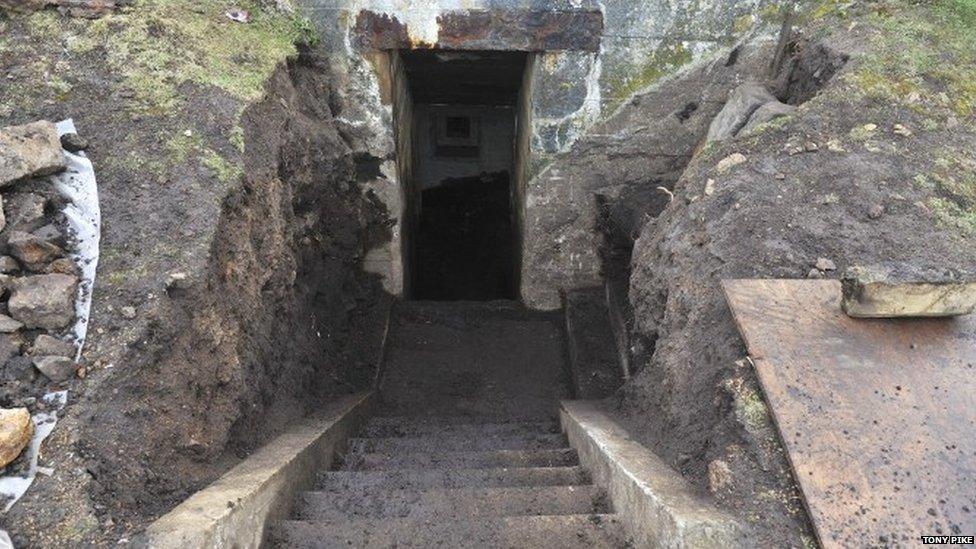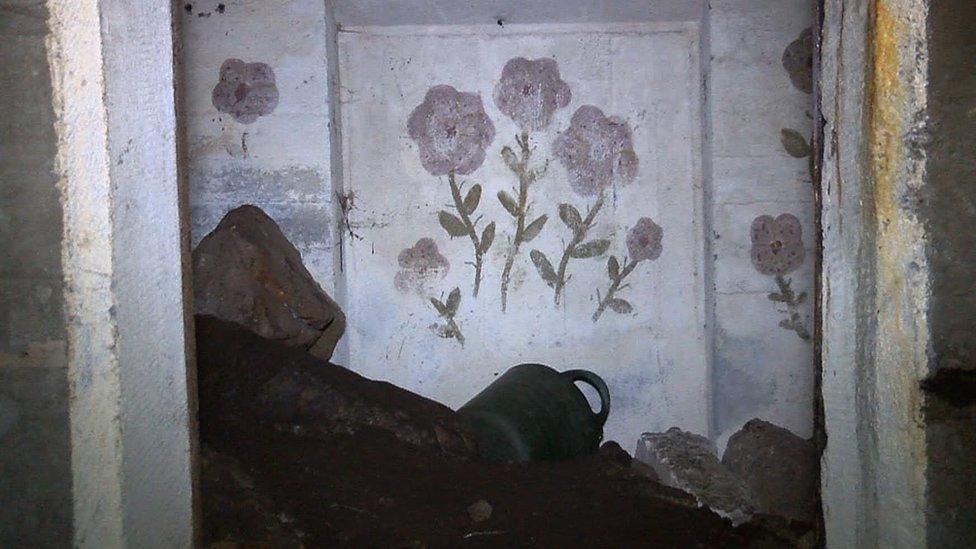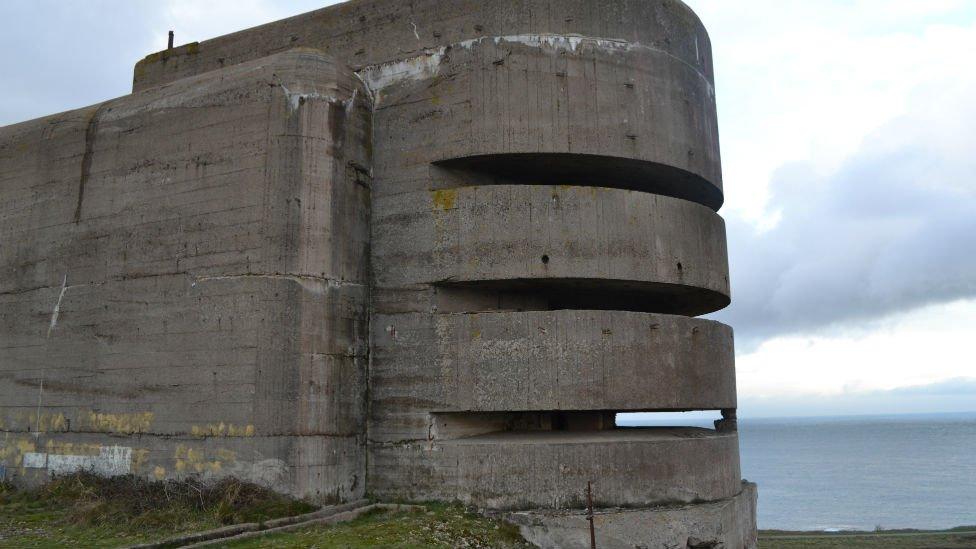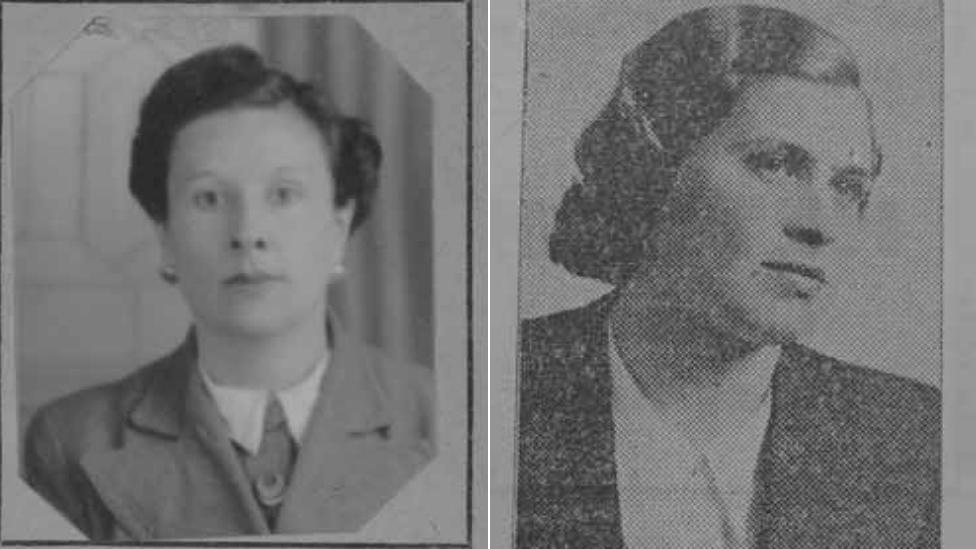German World War Two bunker in Jersey excavated
- Published

The States of Jersey filled in the German bunker in the 1960s
A World War Two bunker in Jersey will be opened up to the public for the first time since it was filled in more than half a century ago.
Tonnes of earth and rubble have been excavated by hand from the bunker at Les Landes Common by the Channel Islands Occupation Society (CIOS).
The former anti-aircraft gun station still has German artwork inside.
It could feature as part of a guided history walk planned for 9 May, to mark Jersey's Liberation Day.
The Channel Islands were the only part of the British Isles to be occupied during the war, remaining under German control for five years until they were liberated in May 1945.

LES LANDES COMMON BUNKER
Luftwaffe Fl 242 anti-aircraft gun bunker
Fortification 2m (6.5ft) thick
Crew quarters for eight people
Fully equipped for gas attack, including gas-lock doors

The CIOS was given permission to carry out the work by the States of Jersey Environment Department.
The group said the islands were fortified "out of all proportion to their strategic value" because Hitler believed the Allies might attempt to regain the islands.
It resulted in hundreds of concrete, reinforced bunkers, gun stations, anti-tank walls and tunnels being constructed for an invasion that never came.
The bunker at Les Landes Common would have been manned 24 hours a day.

The excavation has revealed original German floral artwork on the walls of the bunker
Volunteers have removed about 15 tonnes of earth and rubble from the bunker, which Tony Pike from the CIOS says was filled in by the government "partly for safety reasons and partly to have it buried and forgotten".
"After the war the States tried to destroy the fortifications," he said. "They were considered a nuisance and not regarded as of historical importance, but it was too expensive, so bunkers were filled with rubble and waste."
Mr Pike said he hopes the excavation will be completed in time for it to feature in the history walk he is planning next month.
- Published31 March 2016

- Published4 March 2016

- Published31 January 2016

- Published31 January 2016
